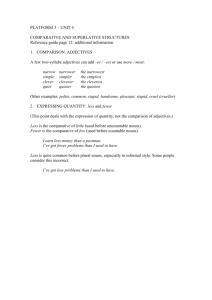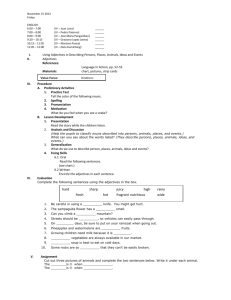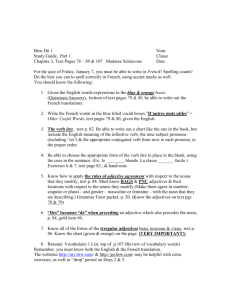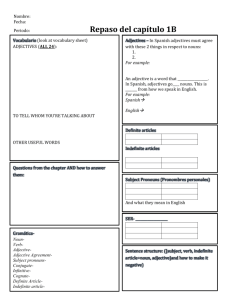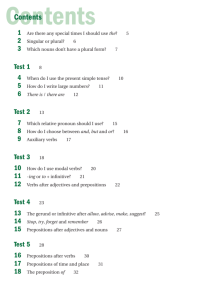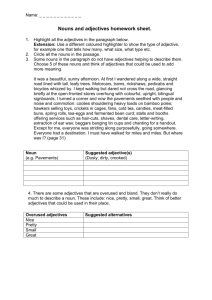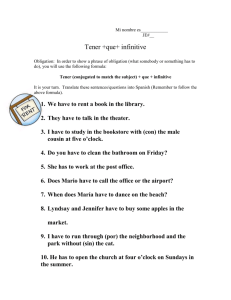Unit 5 Structure Notes Let me intro my FAMILY
advertisement
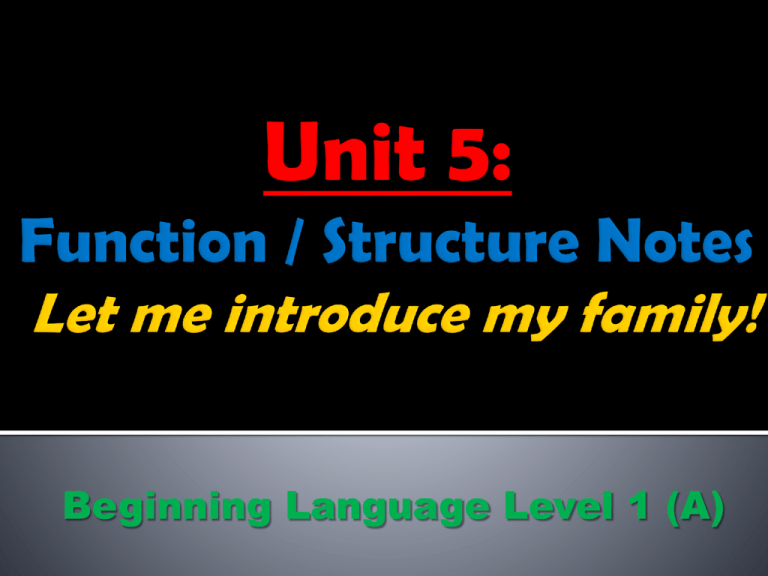
Beginning Language Level 1 (A) I can understand what people say in a short conversation about family members. I can understand basic descriptions of family members. I can understand personal e-mails, notes and other short reading about family. I can ask and tell what my family member look like and their personality. I can ask and tell what members of my family like to do and why. I can describe my family. I can talk about what members of my family like and don’t like and they do in their free time. I can describe my family using photographs, etc. 1. Gender / Number agreement 2. Possessive Adjectives 3. ESTAR + Prepositions 4. TENER QUE and HAY QUE 5. IR + A + Infinitive An adjective is a word that describes a noun. Good = bueno Spanish adjectives generally follow the nouns that they modify. El coche rojo. Most nouns that end in “O” are masculine and most nouns that end in “A” are feminine. Spanish adjectives must agree in GENDER and in NUMBER with the nouns they modify. Most adjectives can be spelled 4 different ways in Spanish: Bueno Bueno, buena, buenos, buenas. Some adjectives that end in “E” can only be made plural by adding an “S”. No gender change. Possessive adjectives are words that let people know to whom or to what something belongs. Unlike most adjectives, these are ALWAYS found BEFORE the nouns that they modify. These words are adjectives; they must match the nouns that they modify in terms of NUMBER. Possessive Adjectives Use the verb ESTAR (to be – Estoy, estás, está, estamos, están) to describe the location of nouns. Use prepositions to locate the object. Prepositions: Use the verb TENER (to have – Tengo, tienes, tiene, tenemos, tienen) + QUE + Infinitive (2nd verb) to tell what someone has to do. Use HAY QUE + Infinitive (2nd verb) when there is no specific subject. Be sure to conjugate TENER Examples: To discuss what is going to happen or what someone is going to do, use the IR + A + Infinitive An INFINITIVE is an unconjugated or unchanged verb. IR means to go and its forms include: Voy, Vas, Va, Vamos, Van. Examples: Voy a acechar el animal. I’m going to stalk the animal. Vamos a cazar los tigres. We’re going to hunt the tigers.

